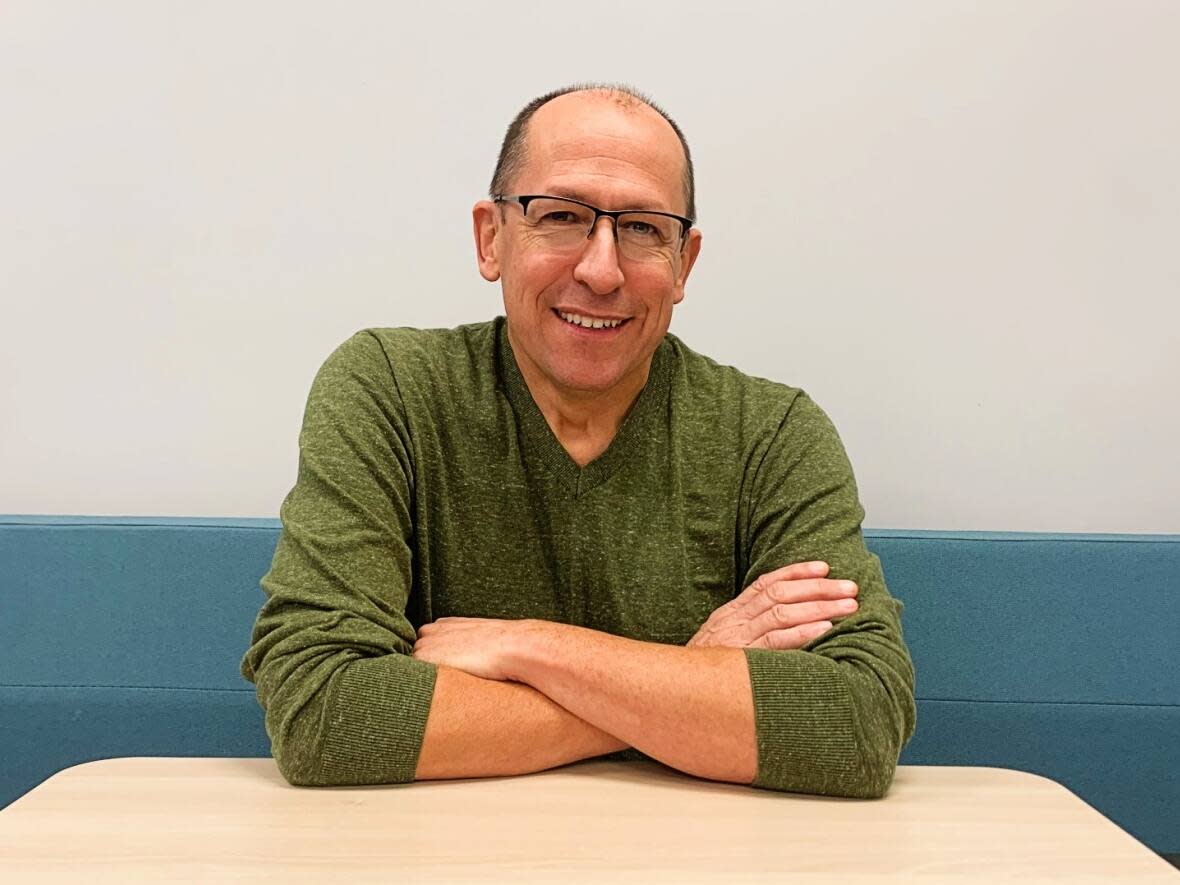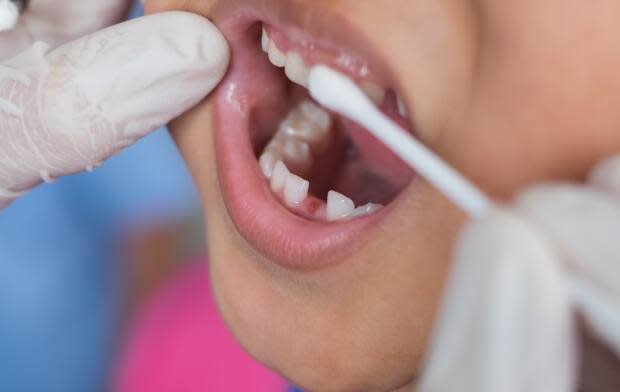Dental hygienists encourage more men to join 'female-dominated' profession on P.E.I.

Patients would sometimes be surprised when Gerald Proctor would introduce himself as their dental hygienist.
Wait, a male dental hygienist?
Proctor is a rarity on P.E.I. According to the Dental Hygienist Association of P.EI., of approximately 120 registered hygienists on the Island, only three are men.
It's not something people are familiar with seeing. Some have mistaken him for a dentist, Proctor said.
"They're still a little bit, I guess confused would be the word," he said. "They're not put off by it, but they're just like, OK well this is different, you know, and different's fine."
With a shortage of dental hygienists, as well as dental assistants, some are wondering if "different" — attracting more men and others to the field — would help alleviate the months-long waits to get in for just a teeth cleaning.
Monica Simpson, president of the association, said the demand for oral hygiene services has increased as the population grows, government dental care programs broaden the patient base, and dental offices get caught up from the backlog created during the COVID-19 pandemic.
She said it wouldn't be difficult for a dental hygienist to find work on P.E.I. Most pay between $36 and $40 an hour.
Two schools in Maritimes
"Certainly, if we could encourage more men to take the profession, that would be a great idea," she said.
"It's a female-dominated profession and often times when you have a young mother, they may choose to work part time to make it easier for things at home. And then also with an 18-month maternity leave option, it means that you have a longer span that you're trying to refill that position and there's several maternity leaves that haven't been able to be filled so that leaves people short, as well."

The hours were one of the perks that attracted Proctor to the field. He was a truck driver for many years, but when he got laid off more than a decade ago, he took a career development course that led him to health care.
But he was starting a family, and the weekends and shift work prevalent in hospital work was not appealing to him. Dental hygiene, however, was something he could sink his teeth into.
"So I'm being honest with my career development officer. I said, you know, I don't want to sound snobbish, but I don't want that for myself at this point in my life. I want like a Monday-to-Friday-type job."
Dr. Brian Barrett, executive director of the Dental Association of P.E.I., said there is a shortage of trained workers in all health-care fields, and dental hygiene is no exception, but there is no simple solution.
"The only way is to train a great many more and as it can't be done very quickly, the problem will be here for several years. The average age is also increasing so more are also retiring so no fast fix is going to occur."
We hear that very often, 'I couldn't do what you do.' And I think there's lots of jobs I couldn't do that other people do. — Monica Simpson
There are two places in the Maritimes that offer dental hygiene training — Dalhousie University in Halifax and Oulton College in Moncton.
Proctor graduated from Oulton 10 years ago and was hired by Peter Bevan-Baker, a dentist who is now the leader of the P.E.I. Green Party, at the Hampton Dental Clinic.
He's been there ever since, loves it and would recommend it to other males. He said early on there may have been a stigma attached to it as a "female-dominant" profession, much like nursing, but he said that's no longer the case.

"There's sometimes where I think that people sometimes let their guard down because I am a male. We do a lot of things like health histories and questions and things like that. So there's times where I'm sure that female patients are more comfortable with a female hygienist, but then there's also times where there's male patients that are probably more comfortable with a male hygienist."
The "nurturing" aspect is likely why dental hygiene has traditionally attracted more women, Simpson said.
Plus, let's face it, not everyone has the stomach to scrape plaque off someone else's teeth.
"We hear that very often, 'I couldn't do what you do.' And I think there's lots of jobs I couldn't do that other people do," she said.
"If people are nervous coming to the dentist you have to be caring and nurturing and patient. It's not for everybody but it's a great job in some ways for sure."
Males can be just as nurturing, Proctor said, and and digging around in someone's mouth is not an issue for him. He learned during his training, through an outreach program where he would work on people whose circumstances prevented them from seeing a dentist regularly, that helping to improve a patient's health is one of the rewards of being a dental hygienist.
"It was excellent to have those experiences early and realize you can make a difference in someone's health, in someone's life, because we don't realize how important it is to go to a job interview and give a bright, confident smile."


